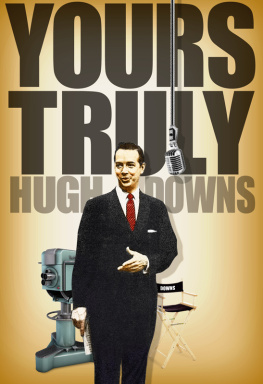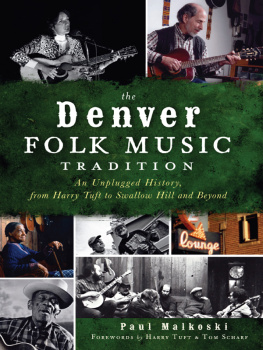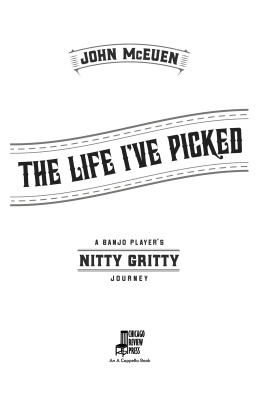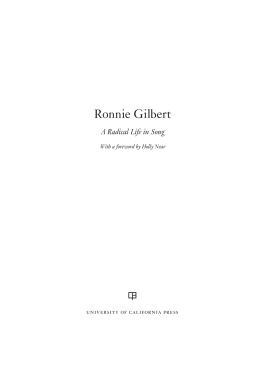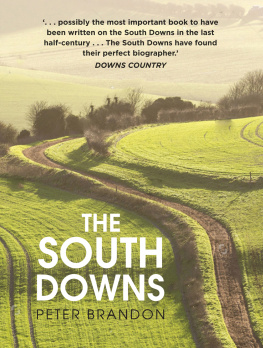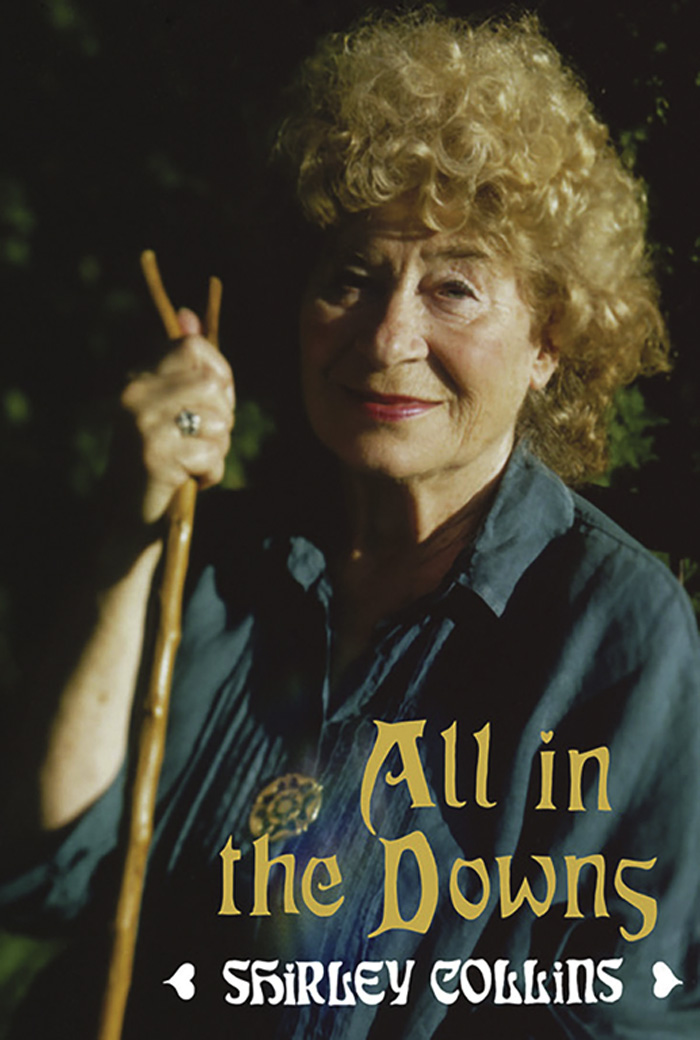Contents
Guide
ALL IN THE DOWNS
Also by Shirley Collins:
America Over The Water (SAF, 2004)
All In The Downs: Reflections On Life, Landscape And Song
By Shirley Collins
First published by Strange Attractor Press in 2018, in an unlimited paperback edition and an edition of 500 hardbacks, with a signed insert.
All In The Downs Shirley Collins 2018
Introduction Stewart Lee 2018
Cover photograph by SF Said
Cover illustrations by Lorna Ritchie
ISBN: 978-1907222-412
Shirley Collins has asserted her moral right to be identified as the author of this work in accordance with the Copyright, Designs and Patents Act, 1988.
All rights reserved. No part of this publication may be reproduced in any form or by any means without the written permission of the publishers.

Strange Attractor Press
BM SAP, London, WC1N 3XX, UK
www.strangeattractor.co.uk
Distributed by The MIT Press, Cambridge, Massachusetts.
And London, England.
d_r0
Contents
- -->
- -->
- -->
- -->
- -->
- -->
- -->
- -->
- -->
- -->
- -->
- -->
- -->
- -->
- -->
- -->
- -->
- -->
For my daughter Polly Marshall Taplin, my son Robert (Bobby) Marshall and my grandsons Joe Miller-Marshall (musician) and Louis Miller-Marshall (cricketer); Chris Taplin; Daphne Dahrendorf; Pip Barnes; Ian Kearey; David Tibet.
And with thanks to my publisher Mark Pilkington for his unfailing patience.

PROLOGUE
Long Looked For Come At Last

Shirley at the fundraising event for The Ballad of Shirley Collins, June 2014 (Stephen Hopper).
On 8 February 2014 I stood at the side of the stage at The Union Chapel in London's Islington, waiting, with almost a feeling of dread, to sing in public for the first time in over thirty-five years. I had finally agreed to do this for my friend and supporter David Tibet at a concert by his band Current 93, and that after two decades of his asking. Ian Kearey was there to accompany me on guitar, and my daughter Polly was with me to give me courage. I sang just two songs, All The Pretty Little Horses and Death and the Lady. It was a shaky performance, but at least I did it, and a door had opened again that I had thought was closed for ever
Within two years I had recorded Lodestar for Domino, my first new album since 1978.
Three years later, almost to the day, on Saturday 18 February 2017, I stood in the wings at The Barbican ready to go on stage to sing the Lodestar concert with the seven-piece Lodestar Band. I felt a huge responsibility towards the audience, the musicians, and the songs. I invoked the presence of the old singers I had learned these songs from; I was singing back to them, for them. When I thanked the audience for their warm welcome, everything was in place, and I knew I could open my mouth and sing a changed voice, but still my own. After almost forty years I was Shirley Collins, the singer, again.
You might wonder why I had stopped. Why it took so long for me to sing again. Did it matter in any case? One thing is for certain, none of us ever knows what life is going to throw at us, good or bad, or how we might react; but here's my story, the whole story.
Note
Song collected by George Gardiner, from William Winter, Andover, Hampshire, July 1906.
INTRODUCTION
The torch songs of Billie Holiday seem indivisible from the tragedy of her own life; it's impossible to imagine the barbed ballads of post-punk legends The Fall unfiltered by the strident individuality of their singer Mark E Smith; and The Wombles celebratory anthems about litter collection would not have rung so true had we not known that their daily lives were indeed devoted to selfless off-the-grid guerrilla recycling. But rarely has an artist been as apparently absent from their own work as the writer, song collector and folk singer Shirley Collins.
If I may, in contrast to Shirley, blast my own monstrous trumpet for a moment, I believe it was I who, when penning sleeve notes to Shirley's 2016 return to recording Lodestar, wrote; To me, her egoless recordings resist stylistic flourishes, remove the obstacle of the performer's personality, and directly channel the listener to the words and music, reconnecting traditional tunes with the strange worlds they emerged from.
In the run up to the record's release, I put it to Shirley, that in her 50s, 60s and 70s performances she didn't so much inhabit a song as surrender to it. To which she replied, All I did was perform the songs in a straightforward way. It's the only way I can sing them, because when people start dramatising or enacting a song, I just become embarrassed. I think the best way is to draw people in, not to stand there and declaim it.
Partly because of this approach, Shirley's recordings have stood the test of time in a way some post-war folk revival favourites haven't, tied to the identifying sonic and social fashions of the scenes that spawned them. But when she came to write what was to be but her first volume of autobiography, 2004's America Over The Water, Shirley's long-term confidante and cheerleader, the underground musician and archivist David Tibet, of Current 93, confessed, in his introduction to the book, to concerns about the apparent invisibility of the author.
Shirley had based her book around the 1959 song collecting trip she made to the deep south of America as the assistant of her then lover the folklorist Alan Lomax, and upon reading a first draft Tibet noted, I felt it was only half-accurate, missing out so much of what I wanted to read about her own life and experience in North America. She had left out practically all information on herself and the book read as an account of Alan Lomax's quest, with a retiring young girl from Sussex assisting, who occasionally mentioned herself. Over many re-writings, Shirley thankfully overcame her modesty to write this luminous account.
When Shirley published America Over The Water in 2004 she had not recorded or performed for nearly a quarter of a century, having suddenly and definitively forsworn singing for mysterious reasons, which she kept private, as she had every right to do. But questions remained unanswered, and one imagined there was a hidden personal drama behind Shirley's apparent accommodation of her former career, the ending of which remained unresolved and more than a little sad.
Then, with no real fanfare, in February 2014, at one of David Tibet's concerts at the Union Chapel in Highbury, Shirley sang again at last, making some kind of public and personal peace with her past. A documentary crew were already trailing her to make what had appeared to be a capstone to her career. But Rob Curry and Tim Plester suddenly found that their proposed film,


